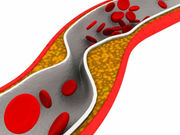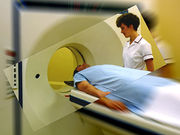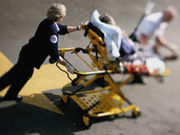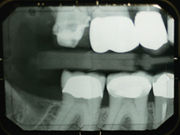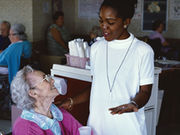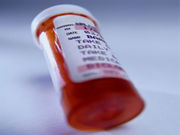Glucagon Receptor Antagonist Ups Blood Pressure in T2DM
LY2409021 linked to drop in HbA1c, increases in SBP, DBP, mean arterial pressure
Stratification Tool IDs Who Will Benefit From Adding Ezetimibe
Tool identifies who will derive additional benefit from addition of ezetimibe to statin therapy after ACS
ASA: Exercise Boosts Cognitive Function After Stroke
Most effective programs offer exercises aimed at strength, balance, stretching, and aerobic fitness
MRI Can Be Safe for Patients With Older Pacemakers, ICDs
However, strict procedures need to be followed
Cyberattacks Remain Serious Threat to Health Providers
Processes, technology should be boosted against cyberthreats, which are becoming more sophisticated
Cytomegalovirus May Up Risk of Diabetes, CVD in Some Women
Conversely, for women with extreme obesity, CMV may offer protection against CVD, DM
ASA: Not Enough Stroke Patients Being Treated With tPA
Minorities, women, seniors on Medicare, rural residents less likely to be diagnosed in time for tPA
ASA: Class-Specific Link Between Periodontal Disease and Stroke
Link strongest for thrombotic strokes, cardioembolic strokes
Nursing Homes Rarely Use Isolation for Drug-Resistant Bugs
Locomotion and eating support are characteristics positively associated with isolation use
Cancer Survivors Likely to Change Rx Drug Use for Financial Reasons
Among nonelderly individuals, recently, previously diagnosed survivors more likely to change rx meds








